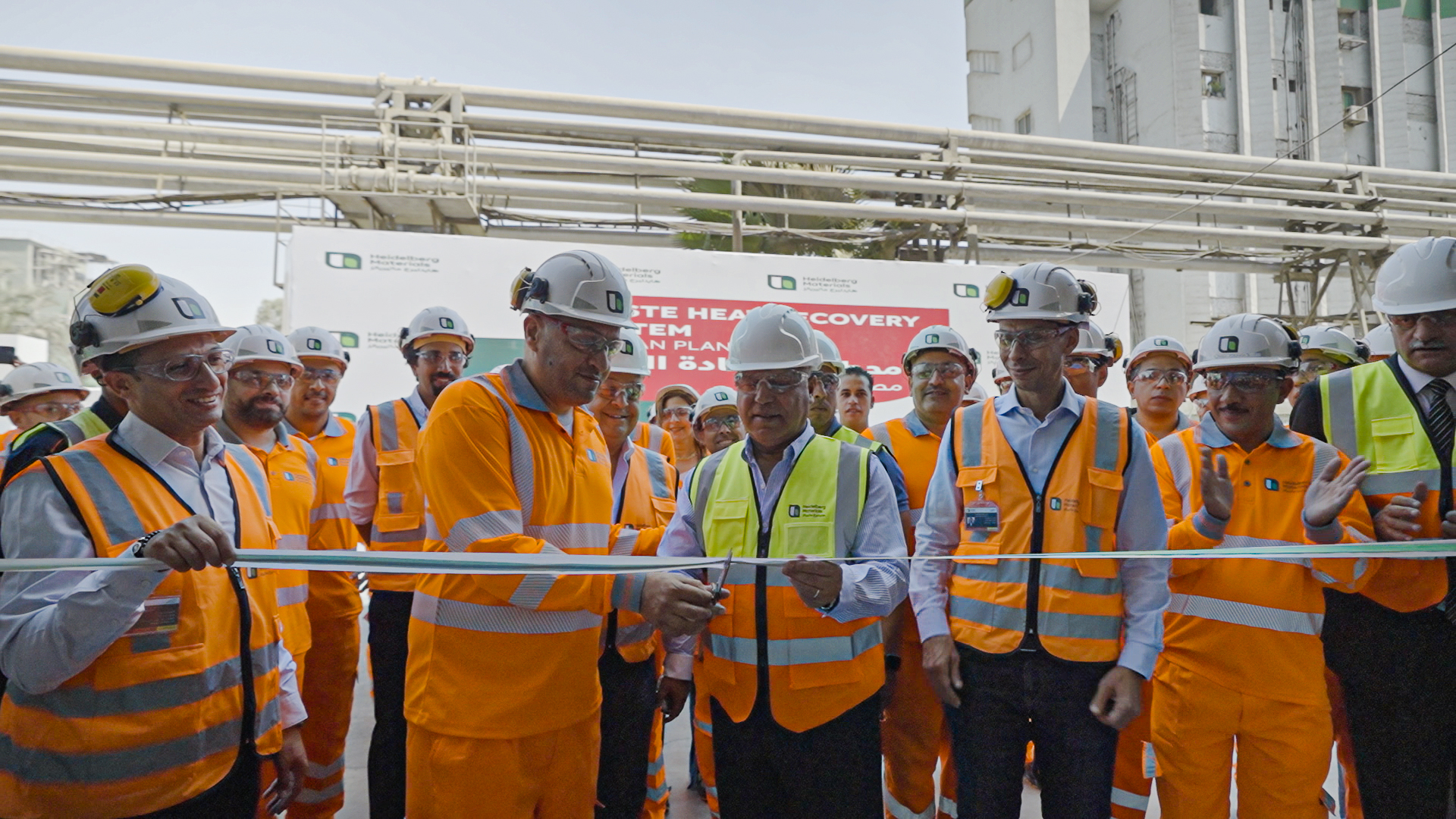Minister Kamel al-Wazir inaugurates Heidelberg Materials Egypt’s USD 30M Waste Heat Recovery System
H.E. Minister Kamel al-Wazir, Deputy Prime Minister of Egypt for Industrial Affairs, Minister of Transportation and Minister of Industry, has inaugurated today Heidelberg Materials Egypt’s first-of-its-kind Waste Heat Recovery System in its Helwan plant.
During the inauguration, Minister Kamel al-Wazir commended Heidelberg Materials Egypt on its efforts in pioneering the Waste Heat Recovery System in Egypt and its dedication to environmental sustainability through innovative technology and setting a new industry standard, highlighting the company's significant contribution to Egypt's sustainable development.
The leading cement company launched the USD 30 million breakthrough project in its Helwan plant, marking it the first innovation of its kind in Egypt, especially in the cement industry.
“Cement remains a necessary material for the building of our modern community, growing economy and strong nation. At Heidelberg Materials Egypt, we take it as our responsibility to provide this essential commodity with the highest quality. The Waste Heat Recovery System does not only ensure building a greener tomorrow, but greatly supports the national economy by reducing the demand on conventional energy sources as well,” said Mohamed Hegazy, Heidelberg Materials Egypt CEO during the inauguration.
This innovative technology comes within Heidelberg Materials Egypt’s efforts towards protecting the environment and supporting its sustainability, working to achieve the United Nations‘ 2030 Sustainable Agenda and Egypt’s 2030 Vision.
The Waste Heat Recovery System utilizes excess heat from production lines, normally vented into the atmosphere, to produce valuable energy.
This technology has the potential to generate up to 20 MW of power for captive consumption. Heidelberg Materials Egypt is employing this innovation to decrease energy use and reduce CO2 emissions by up to 40 Ktons per year.
The Waste Heat Recovery System reduces dependence on conventional energy sources, aligning with Heidelberg Materials’ global vision of increasing use of recycled and renewable energy for a more sustainable environment. This also saves national spend on conventional energy, leading to an overall positive impact on the Egyptian economy.
Heidelberg Materials Egypt is proud to be the forerunners of this effort in Egypt, especially in the cement industry. The company is looking forward to working hand in hand with all its national partners to roll-out innovative sustainable practices in Egypt to build a safer environment, a stronger economy and a better future for all.
The Waste Heat Recovery System is one of mega projects Heidelberg Materials Egypt is spearheading in line with the company’s global Sustainability Commitments 2030 that aim at building a more sustainable future that is net zero, safe and inclusive, nature positive, and circular and resilient.
In recent years, Heidelberg Materials has developed new products with a lower carbon footprint, utilizing materials like Pozzolana and Masonry. These products have received international certification for their environmental benefits and help reduce CO2 emissions significantly.
The company has also been committed to alternative fuel and raw material sourcing. Heidelberg Materials Egypt was the first cement producer in Egypt to use alternative fuels in all its running kilns, leading to a substantial increase in their usage over the years. This has resulted in a significant reduction in CO2 emissions. Furthermore, the company has been utilizing waste materials from other industries as alternative raw materials, contributing to a more circular economy.
Heidelberg Materials Egypt has demonstrated a strong commitment to sustainability, both in terms of product innovation and resource management. This dedication has not only led to environmental benefits but has also contributed to the company's financial success, as evidenced by the consistent growth in sustainable revenue and the decline in CO2 emissions.

Minister visit.

Minister visit.